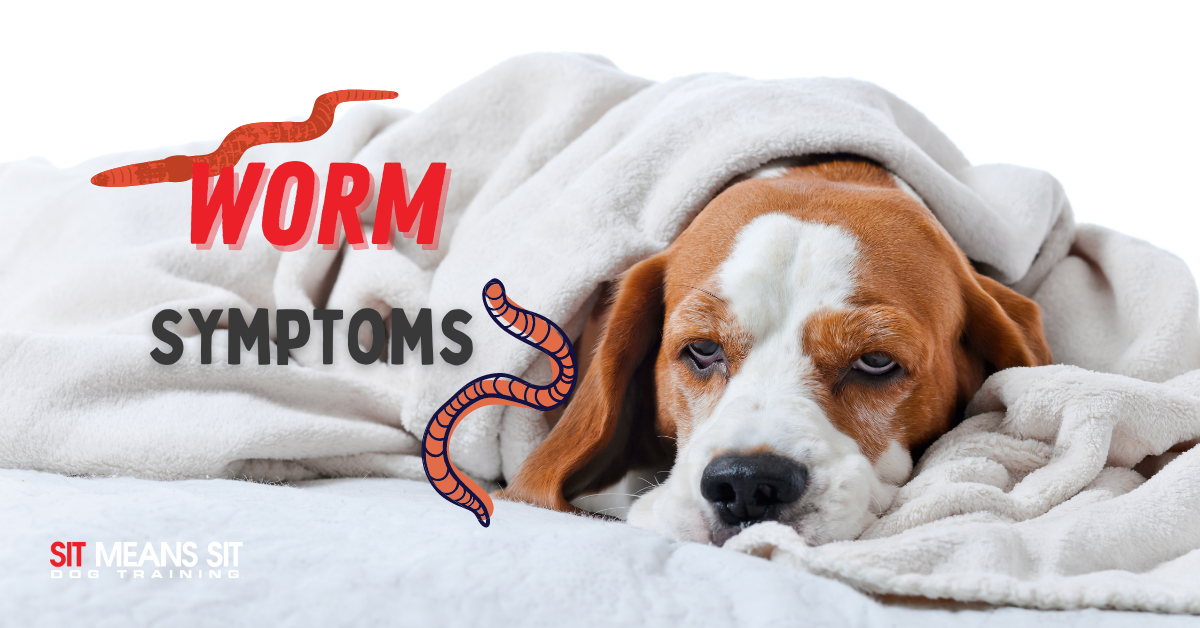
Symptoms of Worms in Dogs
The idea of your dog having worms can be both scary and worrying to deal with, especially if you don’t have any physical evidence of the pesky creatures. Spotting symptoms of worms in your dog can be extremely important for getting them treated early on. The most common worms found in dogs are heartworms, hookworms, roundworms, tapeworms, and whipworms, each having different symptoms and effects on your furry friend. Here’s how to tell worms apart by their symptoms and what to do once you discover your pooch has worms!
Heartworm Symptoms
Heartworms are one of the most recognized names when it comes to dog worms. They affect and live in a dog’s heart and lungs. Dogs with heartworms appear healthy but are quickly impacted by the worms. These are the symptoms of heartworms to watch for in your dog:
- Difficulty breathing (or wheezing for no reason)
- Excess coughing
- Lethargic/not wanting to be active
- Tiring quicker than usual
- Weight loss
- Pot/hard-bellied (due to fluid collecting in the abdomen from heart failure, visit the vet immediately)
Hookworm Symptoms
Adult dogs can show symptom signs of hookworms, but they are most commonly found in puppies. Puppies are also at the highest risk of becoming very sick or even fatally affected. Hookworms ‘hook’ into a dog’s intestine wall to feed on blood, leaving behind bleeding ulcers when detached. Symptoms include:
- Weight loss/lack of appetite
- Poor growth (in puppies usually)
- Diarrhea/bloody stool
- Coughing
- Low energy
- Pale gums
Roundworm Symptoms
Roundworms can be most commonly found in puppies as roundworms in adult/senior dogs is rare. Symptoms are more likely to be seen in younger pups:
- Pot-bellied
- Lack of growing
- Weight loss & lack of appetite
- Pale gums
- Vomiting
- Diarrhea
- Lethargic or loss of usual energy
- Rough fur/coat
- Visible worms found in feces or vomit (spaghetti-like appearance)
- Coughing
Tapeworm Symptoms
Dogs that have tapeworms often don’t get very sick or show the same symptoms as other types of worms. But, here are some symptoms that you may observe if your dog has tapeworms:
- Scooting their butt across the floor
- Licking around anus
- Loss of weight and/or appetite
- Worms visible in stool either wiggling or similar to large rice grains
Whipworm Symptoms
Whipworms are most common in adult dogs, but puppies may still get them. Symptoms can include:
- Diarrhea that contains blood and/or mucus
- Dehydration
- Weight loss
- Pale gums
- Low energy
Worms in dogs should be treated ASAP, if you notice any combination of these symptoms, take your dog to the vet. They will be able to properly diagnose your pooch and get them the medicine they need. You may also be able to prevent some worms, like heartworms, by having your dog take prevention medicine!
